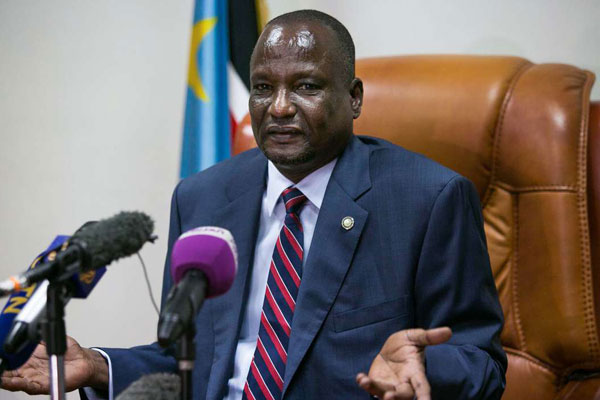South Sudan has launched a $ 53 million electricity access project to light the cities across the country and enhance critical infrastructure.
The Accelerating Sustainable Energy Access and Institutional Strengthening in South Sudan (ASSIST) project, funded by the World Bank and Japan, aims to power Juba, Yei in Central Equatoria State, and Malakal in Upper Nile State, marking a transformative step in the country’s energy sector.
The project was unveiled on Thursday by Vice President for Infrastructure Cluster, Taban Deng Gai, who highlighted the critical link between electricity access and national growth. Speaking at the event, Deng reflected on the historical significance of electrification in the vision of South Sudan’s liberation movement.
“One of the very important aspects of taking the town to the village is electrification,” Deng said.
“ASSIST aligns with the core objectives of why the SPLM liberated South Sudan. On behalf of my President, I extend heartfelt congratulations to the Minister of Energy and Dam and our partners for their commitment to lighting up South Sudan.”
The ASSIST project will extend electricity to streets in Juba, while solar-powered mini-grids will supply energy to schools and hospitals in Yei. Upper Nile’s public institutions will benefit from stand-alone solar systems, making power accessible in remote areas.
On his part, Peter Marcello, Minister of Energy and Dams, reiterated the government’s dedication to expanding energy infrastructure, describing the project as a cornerstone for increasing electricity access and enhancing institutional capacity.
“This initiative will revolutionize energy distribution by installing mini-grid systems and off-grid solutions for health facilities and public institutions,” Marcello said.
“We are building a robust foundation for sustainable energy expansion.”
International partners lauded the move, with Japan reaffirming its enduring support. Aya Oguri, Head of Cooperation at the Japanese Embassy, emphasized the value of partnerships in achieving development milestones.
“Our cooperation is built on mutual respect and shared ambitions. Together, we can create a future where every community, no matter how remote, has access to resources needed to thrive,” Oguri remarked.
Charles Undeland, the World Bank’s Country Director, stressed the economic impact of affordable electricity.
He noted South Sudan’s high electricity tariffs and called for collaborative efforts to reduce costs and increase access.
“Power is fundamental for building businesses, improving livelihoods, and delivering prosperity. Unfortunately, South Sudan faces some of the highest electricity costs globally. Affordable energy is key to unlocking the nation’s full potential.”
The ASSIST project represents a beacon of hope for millions in South Sudan, offering a brighter, more prosperous future where energy fuels progress and opportunity reaches even the most distant corners of the nation.
“Our cooperation is built on mutual respect and shared ambitions. Together, we can create a future where every community, no matter how remote, has access to resources needed to thrive,” Aya Oguri, Head of Cooperation at the Japanese Embassy.






